Markaz Crafts Revival & Development Center
1B, Road 199 (Entrance on Road 233)
Degla, Maadi
Telephone: 02 2754 7026 / 010 240 5858
Opening hours: Daily 10:00am - 7:00pm
Fridays & Holidays 1:00pm – 7:00pm
The beautifully designed Markaz showroom is not only a shop, it also functions as an organization which supports local crafts from all over Egypt, raising public awareness about the women who make their livelihoods from traditional handicrafts. Now of course, with shopping being a women’s pastime all over the more affluent nations of the world, Markaz puts together in one place, the finest products which are tailored to contemporary aesthetics. One would have to travel considerably and with some discomfort (dusty and bumpy roads, deserts, mountains and tiny Bedouin villages) within the many regions of Egypt to find these products if indeed, this were possible to the casual tourist. Many Bedouin women work at home, one rarely sees them at all in the marketplaces plying their goods as their husbands, brothers and sons bring their work to places like the Thursday Market in Al Arish. The items bought there might be one third the price that you find at Markaz, but in the end, one stop shopping when one has limited time, is priceless. Additionally, craft quality such as the silk embroidered bags from Fansina in South Sinai and the glorious textiles of Akhmin in the Sohag Protectorate is unrivalled amongst other shops in Cairo where the owners buy from similar NGOs and private groups.
The unique quality of the pillows, bedspreads, handbags and even dolls at Markaz is that the showroom employs designers who take individual pieces from tassels to beading and textiles and create truly gorgeous and one of a kind items as one can see from the photos above. The Markaz Foundation is dedicated toward the documentation of local and regional craft traditions and, as much as possible, their continuation. Different crafts produced in Egypt include baskets, pottery, embroidery, textile and carpet weaving, brass and leather work, papermaking, quilting and jewelry. Many contemporary Egyptian artists use traditional crafts or aesthetics in their own fine art.
Mohamed Amin is the founder and owner of Markaz Crafts Revival & Development Center in Maadi. He chose the name Markaz because it means center and his is a center of craft from production to education. He is passionate about the concept and the continuation of preserving Egypt’s most precious traditions from the 11-13 Bedouin tribes as well as regional Nubian, Sai’idi and even Sudanese artisans who have immigrated to Egypt. I first became interested in local crafts two years ago while on a Fulbright Hays Summer Seminar to Egypt. I had found several craft stores in Cairo such as Nomad and Fair Trade Egypt’s Craft Store but until now, had not discovered additional centers such as Markaz. I had learned about Fansina Crafts in South Sinai which employs Bedouin women from local villages in 2007 as well and found the project there to be enlightening and beautiful. Then in the summer of 2008, I returned to Cairo and visited around seven NGOs such as APE, Basheyer, El Nafeza and others. It wasn’t until last week that I found Markaz with the help of Sussan, who lives in Maadi.
Markaz was actually conceived on a smaller scale by Mohamed Amin in 1996 and then started in a small way, in 1999. Foundations such as Markaz are not a handout but a hand up to bring dignity, economic freedom, and appreciation to the artisans. In Egypt, associations are based on kinship and honor among friends. It is nearly impossible for a foreigner to truly understand and take part directly in such working relationships. The ability of women to create such astonishingly beautiful handmade products has escaped the notice of most tourists to Egypt. Traditional wedding dresses and headpieces are often showcased but are not really practical as purchases for most. Ethnic Bedouin and Nubian jewelry is sold at high prices over the Internet on eBay and other African craft marketplaces and even in the Khan el Khalili when one can find them. Each piece is unique and savvy Egyptian and European collectors have all but cornered that market. However, the documentation of these crafts and new marketing to target an appreciative audience through publications like the AUC’s plan to publish fourteen books on crafts through a project run by Professor Robert Jones in his Community based Learning Project will provide a wonderful resource and economic freedom for the workers employed not only by Markaz but other NGOs with similar objectives.
The most important life-giving aspect to the craft tradition is a gradual switch from function to the decorative arts. An appreciation of artisan crafts brings a different sort of awareness to us all from the mass consumption of cheaply made objects toward a love of beauty, nature, handmade and unique pieces. Even if every type of weaving pattern and embroidered stitching types fall along the wayside and exist only in books, at least the continuation of some will ensure their survival and appreciation for the people as cultural treasures. Young people often leave their villages to go into the city for education and jobs. Unemployment is high even with a university degree. For the Bedouin and Nubian younger generation a sense of family may be lost along with a sense of belonging and being proud of their culture. There is still a chance for a reversal of fortune not just economically but aesthetically when people like Mohamed Amin and others like him use their talents to revive a nation so rich in history and cultural traditions.
copyright V. M. da Costa
Monday, November 16, 2009
Subscribe to:
Post Comments (Atom)



























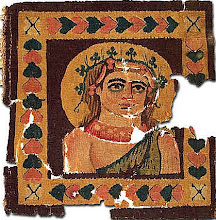
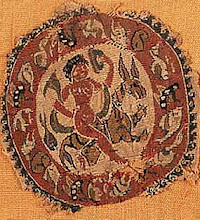














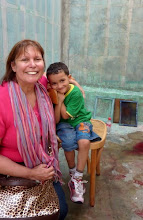













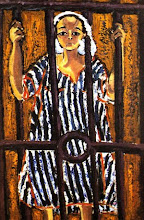

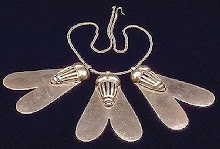
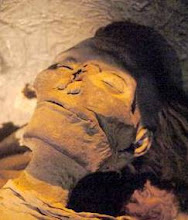





No comments:
Post a Comment